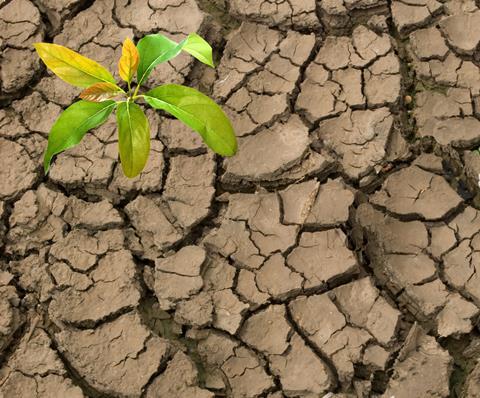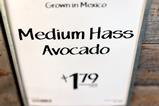Charity Christian Aid calls for action on emissions as water stress in key production regions like Mexico, Spain and Chile leaves future of avocado supply in doubt

Consumers in the UK want the country’s government to offer greater financial support to avocado growers and communities in areas adversely affected by climate change.
That’s according to a new survey conducted on behalf of Christian Aid, which has also called for urgent emissions reductions and a faster shift to clean, renewable energy.
Avocado production around the world is believed to be shrinking as a result of climate change and, in several cases, could be decimated by the anticipated rise in global average temperatures.
The volume of water required to grow avocados makes the fruit especially vulnerable if, as expected, the world becomes hotter, drier, and more prone to drought in the next two decades.
In a new report published this week by the charity, it says avocado supply regions across the globe are under severe threat.
“Avocados might be a superfood, but their kryptonite is climate change,” comments Mariana Paoli, global advocacy lead at Christian Aid. “They are thirsty plants that are ill-suited to a hotter, drought-prone planet, which is where we’re heading if rich nations don’t act to cut their fossil fuel use and reduce emissions.”
Called Getting Smashed: The climate danger facing avocados, the report says areas highly suited to growing avocados are expected to decline by between 14 per cent and 41 per cent by 2050, depending on how quickly global emissions are reduced.
“The UK currently obtains most of its avocados from Peru and Chile, where water scarcity is already high and expansion of avocado production has, in some cases, already compromised access to water for smallholder farmers,” says Chloe Sutcliffe, research fellow in sustainable horticulture at the Royal Horticultural Society. “It is very likely that the impacts of climate change on water availability will further exacerbate water scarcity issues in these areas.”
Potential collapse
Last year, the avocado harvest in Spain was expected to be at least 60 per cent smaller than in the previous season as a result of an extended heatwave. Chile, another major international supplier, has also had to contend with serious problems due to drought and resulting plant disease.
Most dramatically, Mexico’s avocado production is predicted to “collapse” by the middle of this century, according to the report.
In fact, the world’s biggest producer, could see its potential growing area reduced by 31 per cent by 2050 based on a global average temperature rise under 2°C, or 43 per cent if the increase approached 5°C.
In 2021, a separate study concluded that Mexico’s largest avocado growing area Michoacán could see its planted area decrease by between 59 per cent and 72.3 per cent during the same period.
Honor Eldridge, expert on sustainable food policy and author of The Avocado Debate, says commercial avocado production is going to become more of a challenge. Shoppers will likely find they need to pay more a result.
“Producing an avocado is becoming increasingly expensive and these costs will likely be passed onto the consumer, raising the price we pay for our guacamole,” she says.








